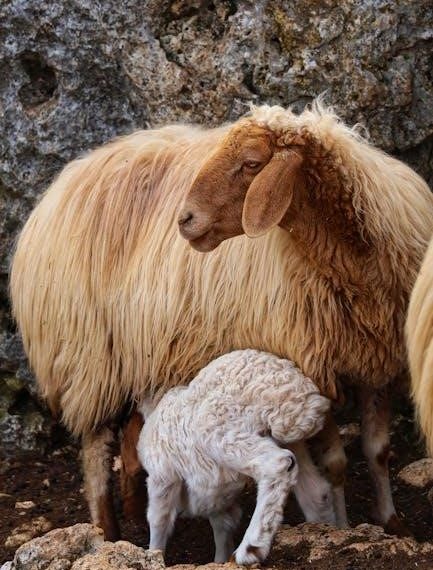animal farm filetype:pdf
Animal Farm, a novella by George Orwell, published in 1945, is an allegory of the Russian Revolution. It explores themes of power, corruption, and democracy through animal characters on a farm.
Overview of the Novel and Its Significance
Animal Farm, written by George Orwell, is a novella that serves as both a children’s fable and a political allegory. Published in 1945, it reflects the events of the Russian Revolution through the lens of a group of farm animals rebelling against their oppressive owner. The novel is significant for its timeless critique of totalitarianism, corruption, and the abuse of power, making it a cornerstone of dystopian literature and a powerful commentary on human nature and society. Its enduring relevance lies in its ability to simplify complex political ideologies into a relatable narrative, offering insights into the dangers of unchecked authority and the erosion of democratic ideals. Orwell’s masterpiece continues to resonate with readers, serving as a cautionary tale about the fragility of freedom and the importance of vigilance in maintaining just societies. By blending humor, tragedy, and moral lessons, Animal Farm remains a vital work of literature, influencing countless adaptations, interpretations, and discussions across generations. Its exploration of themes such as equality, betrayal, and the cyclical nature of history ensures its place as a classic that transcends time and cultural boundaries, providing a mirror to humanity’s ongoing struggles with power and morality.
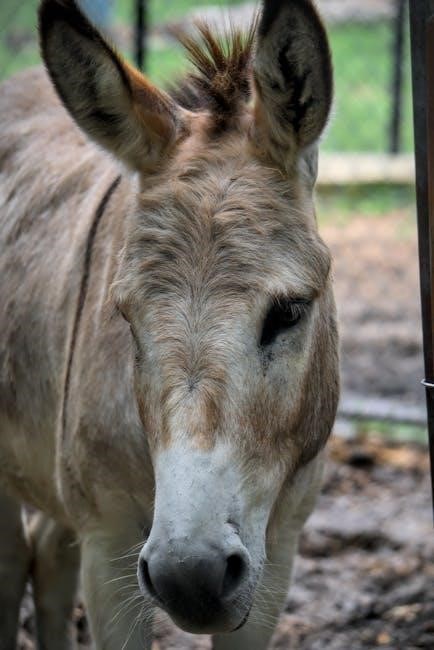
Historical Context and Themes
Animal Farm is deeply rooted in the historical context of the Russian Revolution and its aftermath. Orwell critiques the rise of totalitarianism under Stalin, using the farm as a metaphor for Soviet society. Themes of power corruption, manipulation, and the erosion of ideals are central, as the pigs gradually abandon the revolution’s principles. The novella reflects Orwell’s distrust of authoritarian regimes and the ways in which power can distort even noble intentions, offering timeless lessons on democracy, freedom, and human nature.
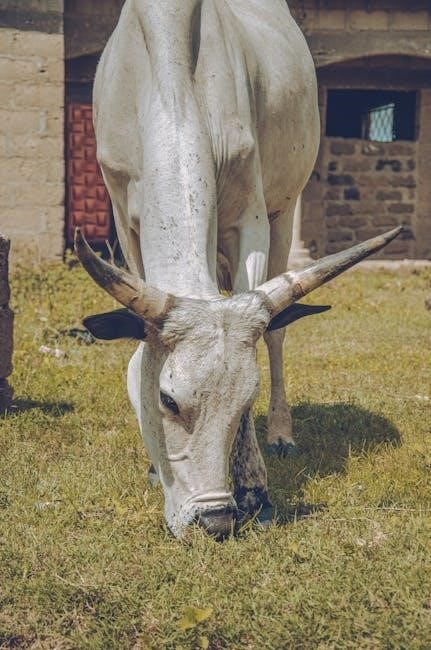
The Plot and Characters of Animal Farm
Animal Farm, by George Orwell, tells the story of Manor Farm’s animals rebelling against Mr. Jones. Led by pigs like Napoleon and Snowball, they establish a new order, but power struggles and corruption ensue, highlighting themes of betrayal and the abuse of authority through its richly drawn characters.
Key Events and Character Development
The novel begins with Old Major’s inspiring speech about rebellion, sparking the animals’ desire for freedom. After overthrowing Mr. Jones, the pigs, led by Napoleon and Snowball, take charge. Key events include the disputes over the windmill, Snowball’s expulsion, and Napoleon’s rise to tyranny. Characters like Boxer, with his unwavering dedication, and Squealer, the manipulative propagandist, illustrate the complexities of power dynamics and the erosion of ideals, highlighting themes of betrayal and corruption.
The Allegorical Representation of Historical Events
Animal Farm is a powerful allegory of the Russian Revolution and its aftermath. The novel mirrors historical events, with Napoleon representing Stalin and Snowball symbolizing Trotsky. The pigs’ gradual corruption and consolidation of power reflect the Soviet leadership’s deviation from revolutionary ideals. The struggle for equality and the eventual tyranny on the farm parallel the rise and fall of communist ideologies, offering a stark critique of totalitarianism and its impact on society.
Themes and Symbolism in Animal Farm
Animal Farm explores themes of democracy, freedom, and the corrupting influence of power. Symbolism is central, with the farm representing society and animals embodying human traits and political ideologies.
The Struggle for Democracy and Freedom
The animals of Manor Farm rebelled against Mr; Jones, seeking freedom and equality. They established Seven Commandments, embodying democratic ideals. However, the pigs gradually manipulated power, undermining the animals’ autonomy. Freedom became an illusion as the pigs exploited their leadership, leading to a loss of individual rights. The novel highlights how power corrupts and how easily democratic principles can be eroded, leaving the animals enslaved by their own leaders.
The Corruption of Power and Its Consequences
Napoleon and Snowball, once revolutionary leaders, saw their ideals corrupted by power. Napoleon’s rise to dictatorship mirrored the pigs’ exploitation of the farm’s resources. The pigs justified their dominance by manipulating the Seven Commandments, turning the farm into a tyrannical regime. This corruption led to the exploitation of other animals, eroding trust and unity, and ultimately, the farm’s decline into a dystopian state, mirroring the failure of revolutionary ideals.
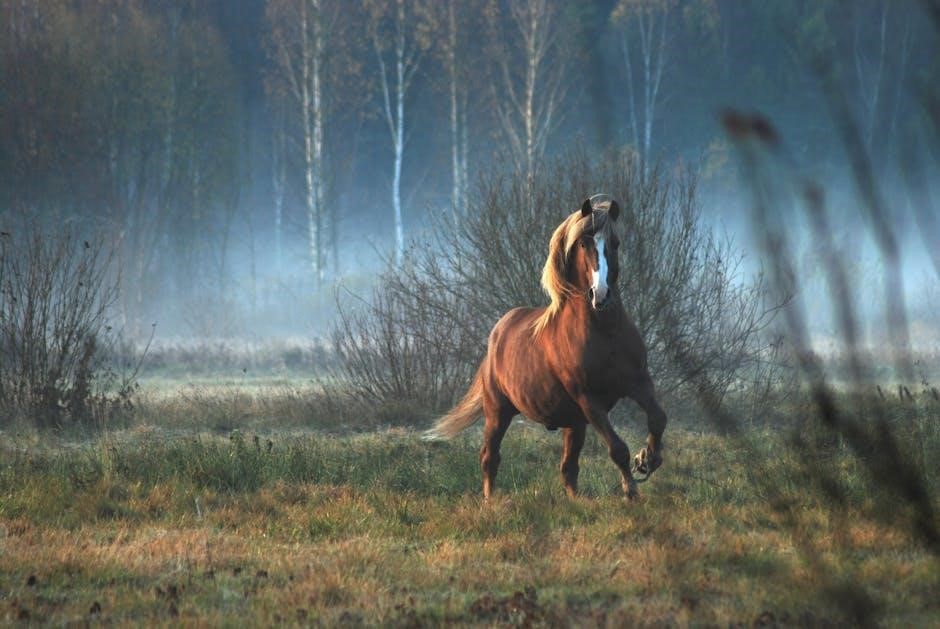
The Role of Education in Society
Educating the animals on Animal Farm was pivotal for unity and progress. Napoleon and Snowball emphasized teaching others to read and think critically. Schools were built, and the pigs educated the younger animals, aiming to empower them. However, education became a tool for manipulation, as the pigs altered the Seven Commandments to justify their power. This highlights how education can both liberate and control, depending on who wields it.
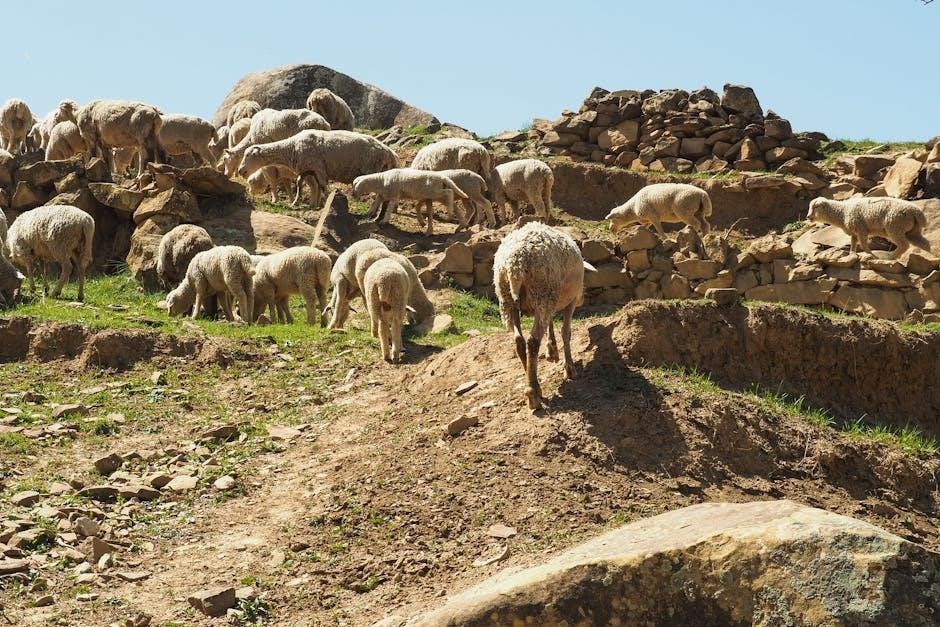
The Animal Kingdom and Its Diversity
The animal kingdom encompasses a vast array of species, from simple organisms like sponges to complex beings. It includes mammals, birds, reptiles, amphibians, and invertebrates, each adapted uniquely to their environments.
Major Groups of Animals and Their Characteristics
The animal kingdom is divided into distinct groups, each with unique traits. Mammals, like cows and horses, are vertebrates with hair and mammary glands. Birds, such as hens, have feathers and lay eggs. Reptiles, amphibians, and invertebrates also play roles. On farms, these diverse species coexist, contributing to the ecosystem. Their characteristics, such as strength or egg-laying, make them vital to farm productivity and sustainability.
Adaptations and Survival Mechanisms in the Animal Kingdom
Animals have evolved remarkable adaptations to survive, such as strength, agility, or camouflage. On farms, species like horses and cows possess robust builds for labor, while birds adapt through flight. Smaller animals rely on group behavior for safety. These mechanisms ensure their survival and productivity, highlighting nature’s ingenuity and the importance of diversity in maintaining balance within ecosystems and agricultural settings.
The Structure and Daily Operations of a Real Animal Farm
A real animal farm typically includes barns, pastures, and feeding areas. Daily operations involve feeding schedules, animal care, and routine maintenance to ensure efficiency and productivity.
Housing, Feeding, and Care of Farm Animals
A well-organized farm ensures animals have proper shelter, nutrition, and health care. Housing includes barns, pastures, and pens tailored to species needs. Feeding involves scheduled meals with balanced diets, while care encompasses regular veterinary check-ups and hygiene practices to maintain animal well-being and productivity.
The Importance of Sustainability in Modern Farming
Sustainability ensures long-term productivity and environmental health. Modern farming practices include crop rotation, organic methods, and renewable energy to minimize waste. Ethical treatment of animals and resource conservation are key. These strategies promote biodiversity and reduce ecological impact, ensuring farms remain viable for future generations while maintaining high standards of animal welfare and environmental stewardship.
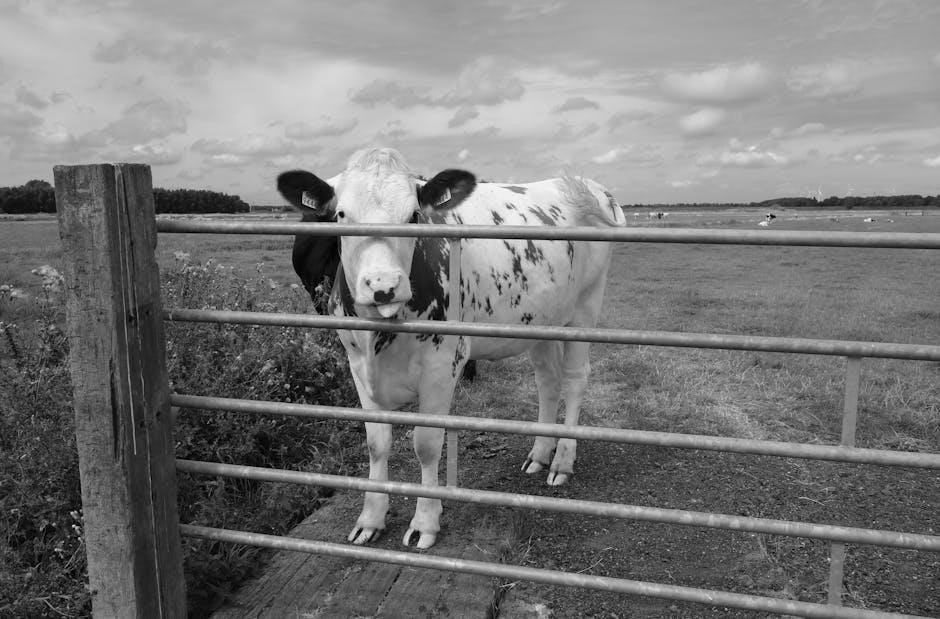
Challenges Faced by Animal Farms
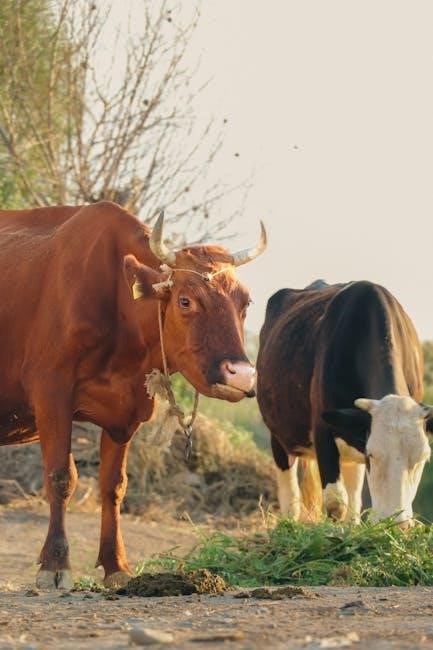
Animal farms face economic pressures, environmental impacts, and ethical concerns. Sustainability challenges, disease outbreaks, and ensuring animal welfare are critical issues requiring innovative solutions and responsible practices.
Economic Pressures and Environmental Impact
Animal farms face significant economic pressures, including rising operational costs and market fluctuations. Environmental challenges such as waste management and resource depletion also pose risks. Sustainability practices are essential to mitigate these issues, ensuring long-term viability while reducing ecological footprints. Balancing productivity with eco-friendly practices remains a critical challenge for modern animal farms, requiring innovative solutions to maintain profitability and environmental health.
Animal Welfare and Ethical Considerations
Ensuring animal welfare is crucial for ethical farming practices. Proper living conditions, healthcare, and nutrition are essential to reduce stress and promote well-being. Ethical considerations include humane treatment, avoiding cruelty, and prioritizing animal rights. Farmers must balance productivity with compassion, adhering to welfare standards that align with moral and societal expectations, fostering trust and sustainability in farming operations.
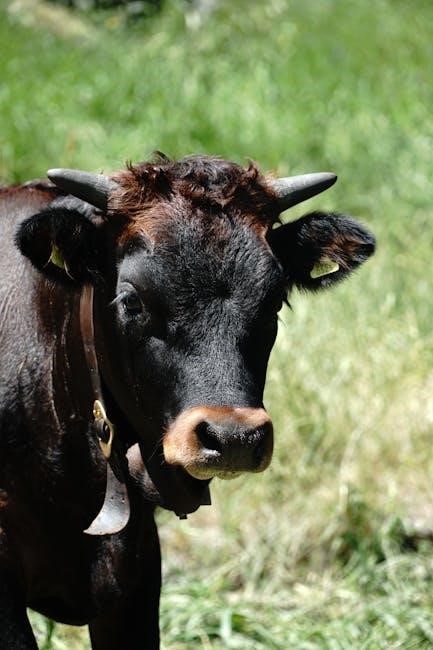
Education and Community Building on Animal Farms
Education unites farm animals, fostering collaboration and shared goals through learning and skill-building initiatives, creating a cohesive and inclusive community dedicated to collective progress and mutual support.
Teaching Animals and Farmers New Skills
Education plays a vital role in fostering unity and progress on Animal Farm. The pigs, being the most educated, take charge of teaching other animals essential skills like reading and problem-solving. They organize workshops and share knowledge to improve farm productivity. However, this education system also highlights the pigs’ growing manipulation, as they use it to maintain control and justify their actions, leading to a divide between educated and uneducated animals.
Building a Unified Community Through Shared Goals
The animals of Manor Farm unite under the shared vision of a utopian society, free from exploitation. Their collective efforts to build a self-sufficient farm foster a sense of belonging and cooperation. However, as power dynamics shift, the unity frays, revealing the challenges of maintaining harmony in the face of differing interests and leadership struggles, ultimately highlighting the fragility of collective ideals.
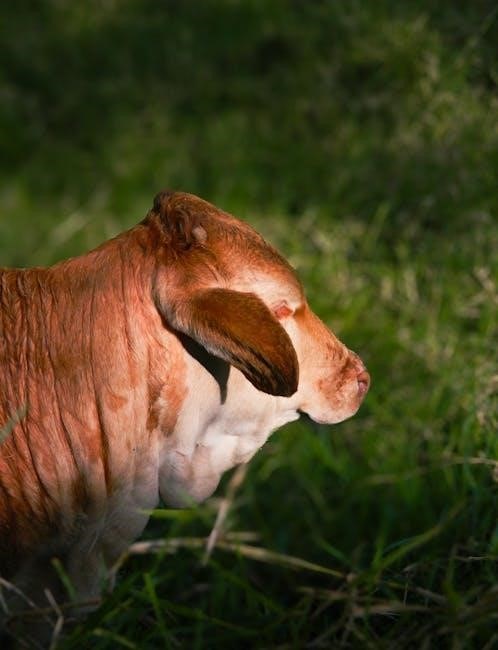
The Future of Animal Farms
The future of animal farms lies in sustainable practices, innovative technologies, and ethical management, ensuring long-term productivity while addressing environmental and welfare concerns effectively.
Technological Advancements and Innovation
Technological advancements are transforming animal farms, with automation, AI, and IoT optimizing feeding, monitoring, and health management. Precision agriculture improves resource efficiency, while innovations like vertical farming and biotechnology enhance sustainability. These tools enable farmers to address environmental challenges and ensure ethical practices, aligning with the themes of progress and responsibility highlighted in Animal Farm.
Ensuring Long-Term Sustainability and Ethical Practices
Sustainable farming practices, such as organic methods and waste reduction, are essential for long-term viability. Ethical considerations, including animal welfare and fair labor conditions, must be prioritized. Implementing strict policies and certifications ensures these standards are met. These practices not only protect the environment but also align with the moral lessons of Animal Farm, emphasizing the importance of balancing progress with responsibility and fairness.
Animal Farm remains a timeless allegory, reflecting on power dynamics, corruption, and the pursuit of equality. Its lessons on ethics and responsibility continue to resonate universally.
Animal Farm, by George Orwell, is a compelling allegory of the Russian Revolution. The story follows farm animals who rebel against their oppressive owner, only to witness their leaders’ descent into corruption. Themes of power, democracy, and morality are central, offering timeless lessons on governance and ethics. This novella remains a powerful critique of authoritarianism, resonating universally with its exploration of human nature.
The Relevance of Animal Farm in Modern Society
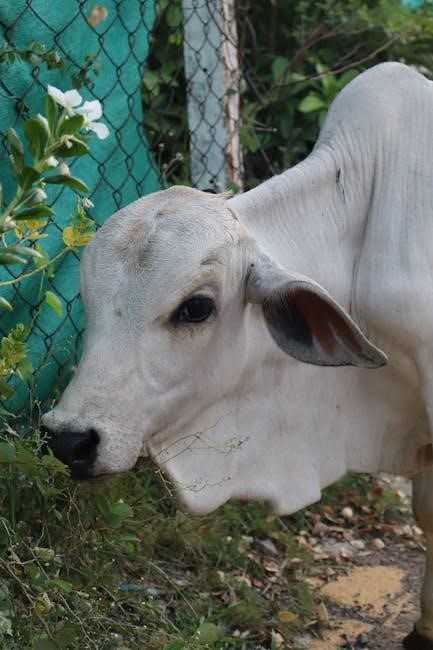
Animal Farm remains a timeless critique of authoritarianism, offering insights into power dynamics, corruption, and the erosion of democracy. Its themes resonate today, addressing issues like government overreach, manipulation of truth, and the loss of civil liberties. The novella serves as a cautionary tale about the dangers of unchecked power and the importance of education in countering oppression, making it a vital reflection of modern societal challenges and political realities.
References and Further Reading
For deeper understanding, explore George Orwell’s Animal Farm and academic studies on its themes. Visit ScienceDirect for scholarly articles and expert insights on the novella’s significance.
Recommended Resources for Deeper Exploration
Explore George Orwell’s Animal Farm through scholarly articles on ScienceDirect and JSTOR. Discover detailed analyses, academic papers, and expert insights. Visit Animal Farm: A Study Guide for comprehensive summaries. Check out library resources like Orwell’s Animal Farm: A Critical Companion for deeper understanding. Utilize online databases for access to essays, critiques, and historical contexts. These resources provide a rich foundation for exploring the novella’s themes and allegorical significance.
Academic Studies and Expert Insights
Scholarly articles on platforms like ScienceDirect and JSTOR offer in-depth analyses of Animal Farm. Expert insights reveal Orwell’s critique of totalitarianism and its relevance today. Academic papers explore the novella’s allegorical layers, while publications like Orwell’s Animal Farm: A Critical Companion provide detailed studies. These resources offer nuanced interpretations of the text, highlighting its historical and political significance. They are essential for understanding Orwell’s intent and the novella’s enduring impact.
